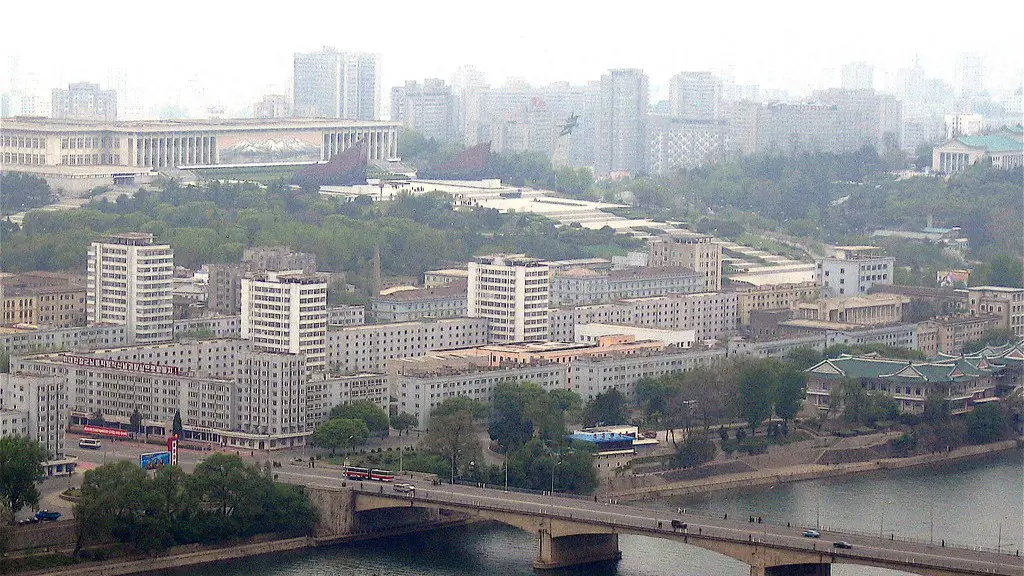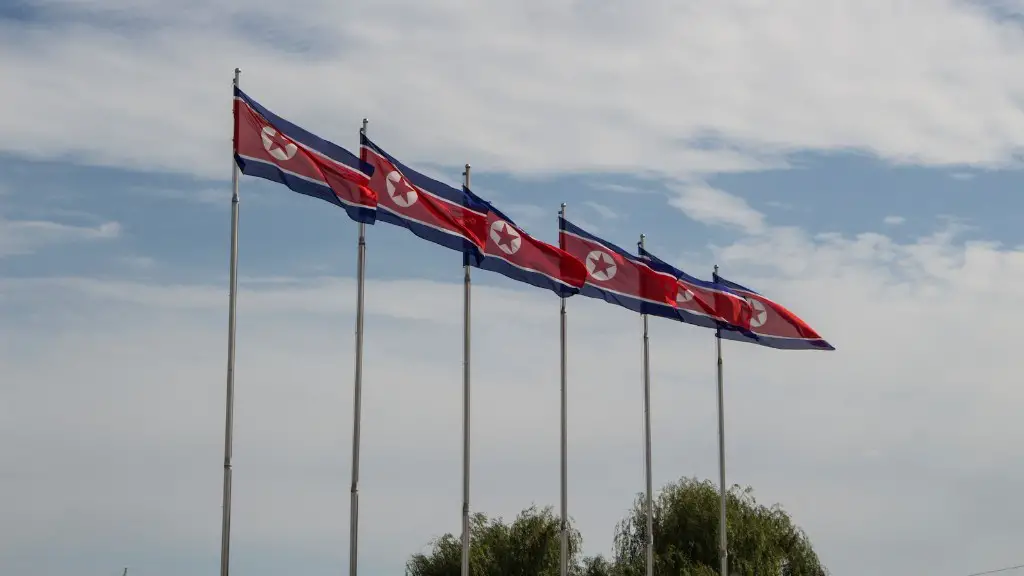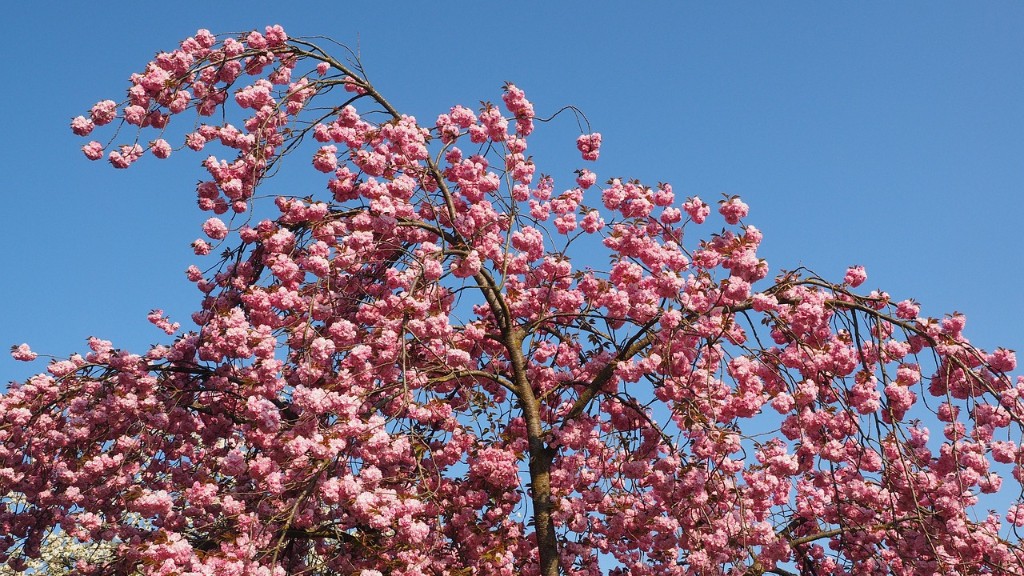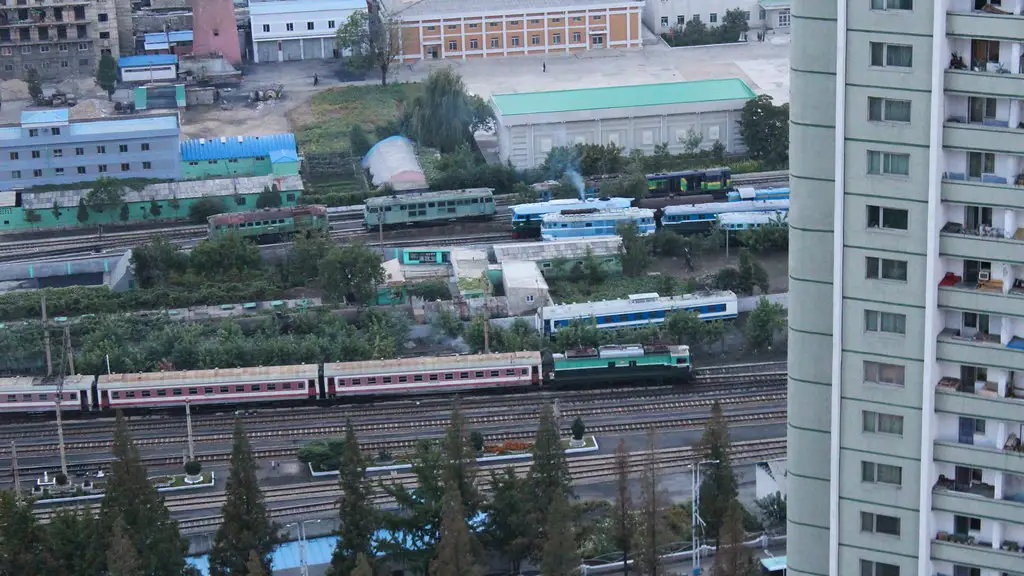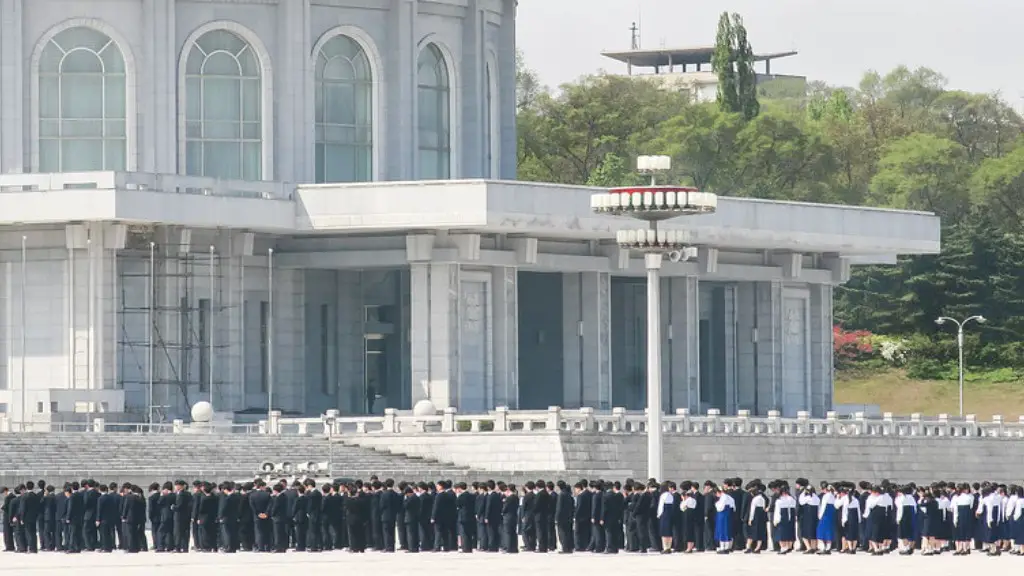The emptiness of North Korea has always been a source of fascination and confusion for many people. Particularly its capital city Pyongyang, which is strangely devoid of life despite the fact that it is the largest city in the country.
There are a few theories as to why North Korea looks so empty. One of the main theories is that the oppressive state-controlled media and its strict control of all the country’s resources prevent people from moving freely throughout the country, thus having a suffocating effect on population growth.
To begin with, North Korea’s state-controlled media promotes a cult of personality for its leaders as well as an oppressive policy of ‘patriotic education.’ This means that citizens are taught to revere and adore the leader, and to believe in the superiority of the Kim dynasty, which has been in power for almost 70 years. As a result, the population tends to be more passive and less likely to participate in vocal opposition against the government, thus leading to a country that is largely static and without much life.
Furthermore, North Korea has one of the most oppressive systems of control in the world, further preventing people from freely traveling throughout the country and having any chances of escaping the state of oppression. This includes a system of government-controlled rations which give citizens just enough food to survive and live in poverty. This combined with the strict surveillance of its citizens means that foreigners and locals cannot travel within the country and participate in any kind of economic or cultural activities.
Finally, North Korea’s government has taken extreme steps to limit contact between North and South Korea, further narrowing the options of those stuck in the North. This includes the construction of an electric fencing system along the Demilitarized Zone (DMZ) that divides the two countries, as well as the imposition of severe restrictions on the import and export of goods, including food and medical supplies.
Economic System
The North Korean economy is in a deep cycle of poverty as it heavily relies on state subsidies and government spending for its economic structures. The government has continued to ration out goods and resources responsibly, leading to a lack of economic growth and stagnation in people’s lives. This has resulted in a highly centralized economy where most of the population earn their living from the state.
With no prospects of financial security, North Koreans have little incentive to start families or pursue other ambitions, resulting in a constantly aging population, and an economy that is slowly dying as a result.
This cycle of poverty has locked the North Korean people in a state of fear that prevents them from taking risks, such as initiating small businesses or engaging in entrepreneurial activities. With no sense of security, it is not surprising that the North Korean population continues to remain static, living in fear.
Political System
North Korea is controlled by a single-party system and a highly oppressive government. It has become known for using state-sponsored terrorism as well as a host of other human rights abuses. This government has also taken extreme steps to limit contact between North and South Korea, making it difficult for people to cross the border in either direction.
This oppressive system has caused a large number of defectors to flee to South Korea in recent years, leading to a reduction of the population in the North, and further deepening the state of emptiness found in North Korea.
The government further reinforces the state of emptiness with its strict policy of censorship. North Koreans are heavily monitored to ensure that they are not accessing or sharing any sort of information that could be seen as being critical of the government or its policies. All of these policies combined create a sense of isolation and powerlessness among its citizens, further contributing to the emptiness seen throughout North Korea.
International Relations
Internationally, North Korea has few friends, as other countries view it as an unpredictable and dangerous nation. Governments around the world have sanctions placed on North Korea in an effort to dissuade them from pursuing nuclear weapons. This has caused great distress in North Korea as it has plunged them into a state of economic isolation and further reinforced the sense of emptiness seen in the country.
North Korea’s attempts at diplomacy is often met with failure, as countries are often wary of dealing with a survivor-state. This has left even the few allies North Korea do have in a state of diplomatic isolation, as it becomes impossible for them to offer economic and political support for the regime.
Additionally, North Korea’s lack of relations with other countries results in a limited amount of goods and resources coming into the country, making it even harder for the average North Korean citizen to survive in their oppressive society.
Cultural Practices
North Korea has a very strict adherence to cultural practices and rigidly follows traditional values of loyalty, deference, and respect. This has led to a sense of communal silence among the population as people simply follow the same rules and values that have been instilled in them for generations.
North Koreans are expected to revere the nation’s leaders, as well as abstain from any kind of outside influence or activities. This has led to a population that is largely conservative, with a limit on creativity and innovation. This has caused North Korea to remain static, with little to no options for cultural exposure and exploration.
Finally, North Korea’s oppressive system of control severely limits the freedom of information and speech, preventing North Koreans from engaging in debates or discussions about politics and other important issues. This stifles personal growth and creativity and reinforces the state of emptiness that is so prevalent in North Korea.
Geographical Factors
The lack of life in North Korea is also largely due to the geographically isolated location of the country, making it difficult for people to move in and out of the region. Geographically, North Korea is located on a peninsula, and is surrounded by China, South Korea, and Japan. This isolated position and lack of access to the outside world has caused a state of extreme cultural and economic stagnation in the region.
The climate in North Korea is also an influence on the situation, with extreme winters and very limited access to energy, making life difficult for those living in the country. This has led to a lack of development, with many citizens living in poor, rural areas with no access to the kind of technology and services that many other countries take for granted.
Finally, North Korea’s system of apartheid has created an atmosphere of fear and paranoia, further narrowing options and consequences for those caught trying to break away from the state-controlled system. This has caused a sense of anxiety and hesitation among citizens, resulting in a population that is largely static and immobile.
